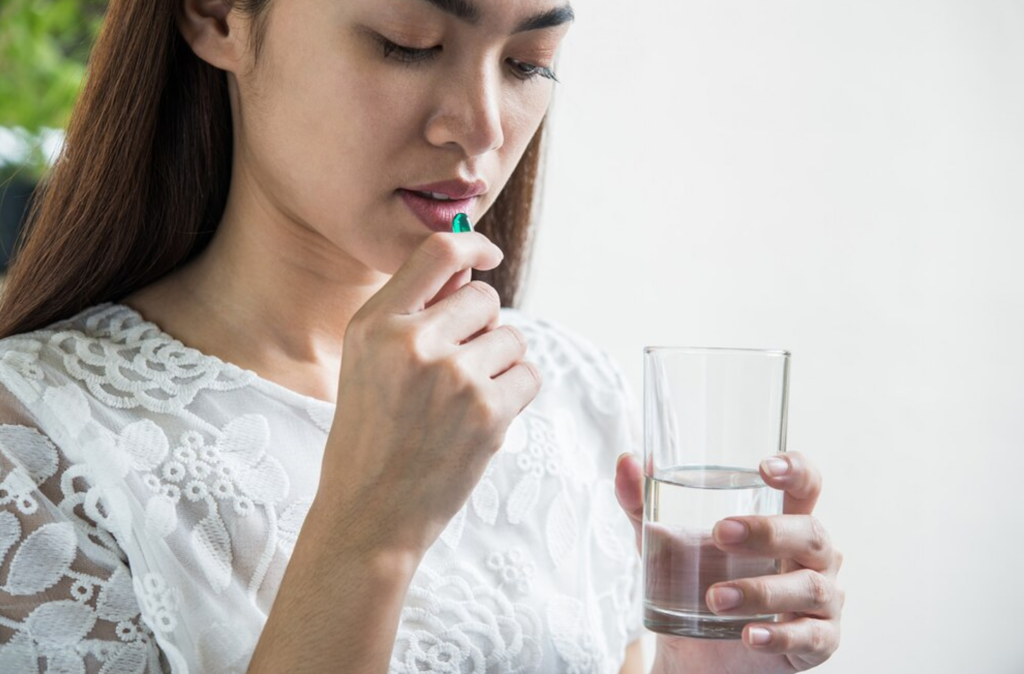Are you tired of seeing yourself with acne breakouts? Well, everyone gets it. It always seems to show up whenever there is an awaited upcoming event, leaving us more frustrated. But how to handle this? Acne is a common skin condition that affects a lot of people, which may also trigger emotions of annoyance, self-awareness, and confidence. Although commonly linked to adolescence, acne can endure into adulthood and pose numerous difficulties. It is important to understand the root causes, identify the various types, and explore the available treatment options to manage this condition effectively. This extensive manual delves into the complexities of acne, providing valuable knowledge about its causes, diverse manifestations, and the wide range of treatment methods at your disposal. Don’t let acne prevent you from feeling attractive and self-assured!
What causes Acne

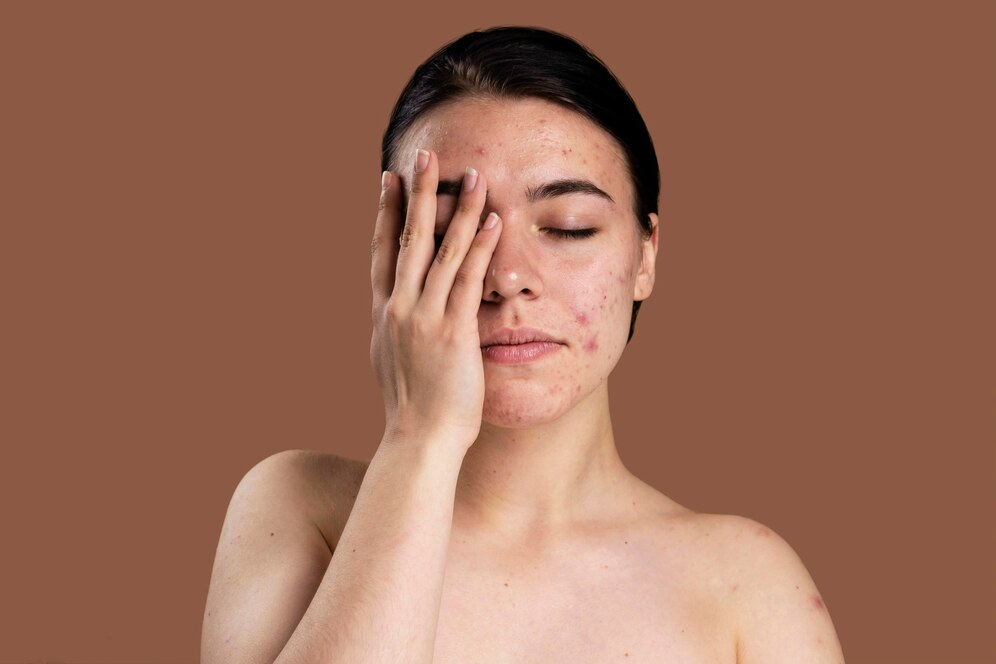
- Hormones – Hormone production increases are the first step toward common teenage acne. Both boys and girls create large amounts of androgens, or male sex hormones like testosterone, during puberty. The oil secreted by the skin’s oil glands, called sebum, is increased in response to testosterone.
- Bacteria – The hair follicles, particularly those on the face, neck, chest, and back, become clogged with too much sebum. These blocked follicles are home to bacteria. This leads to the formation of comedones, or blackheads or whiteheads, on the surface of the skin. Under the pressure of this accumulation, the follicular wall may occasionally burst due to blockage. Inflammatory acne is what occurs when sebum seeps into adjacent tissues and creates a pustule or papule. Nodules are larger, softer pustules.
- Dead skin cells – To create space for new cells to grow, your skin cells shed often. Dead skin cells that are released by your skin may lodge in your hair follicles which can frequently cause acne.
- Diet – Certain foods, particularly those high in carbohydrates like bread, bagels, and chips, have been shown in studies to aggravate acne.
Exploring Different Types of Acne
Acne appears in various forms, each with distinct symptoms, severity levels, and underlying mechanisms. The most common types of acne are
1. Fungal acne: When yeast accumulates in your hair follicles, it can cause fungal acne. These may feel irritated and scratchy.
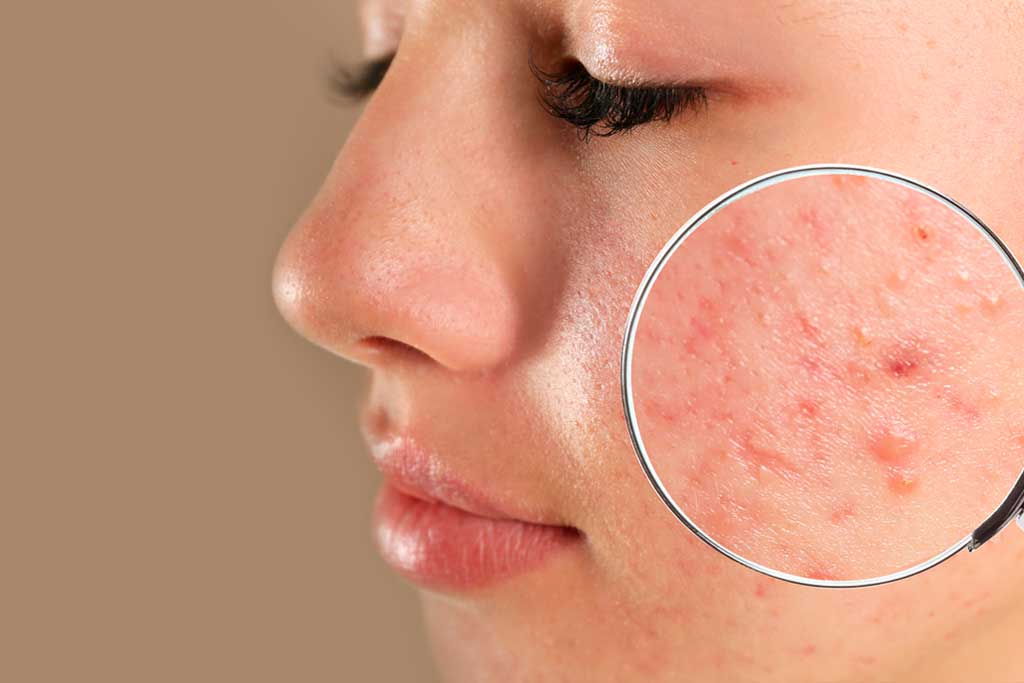
2. Inflammatory acne: Inflammatory acne presents as red, swollen, and tender papules, pustules, and nodules. It occurs when bacteria, particularly Propionibacterium acnes, infect blocked pores, leading to an immune response and inflammation.
3. Hormonal acne: Adults with hormonal acne have excessive sebum production that clogs their pores.
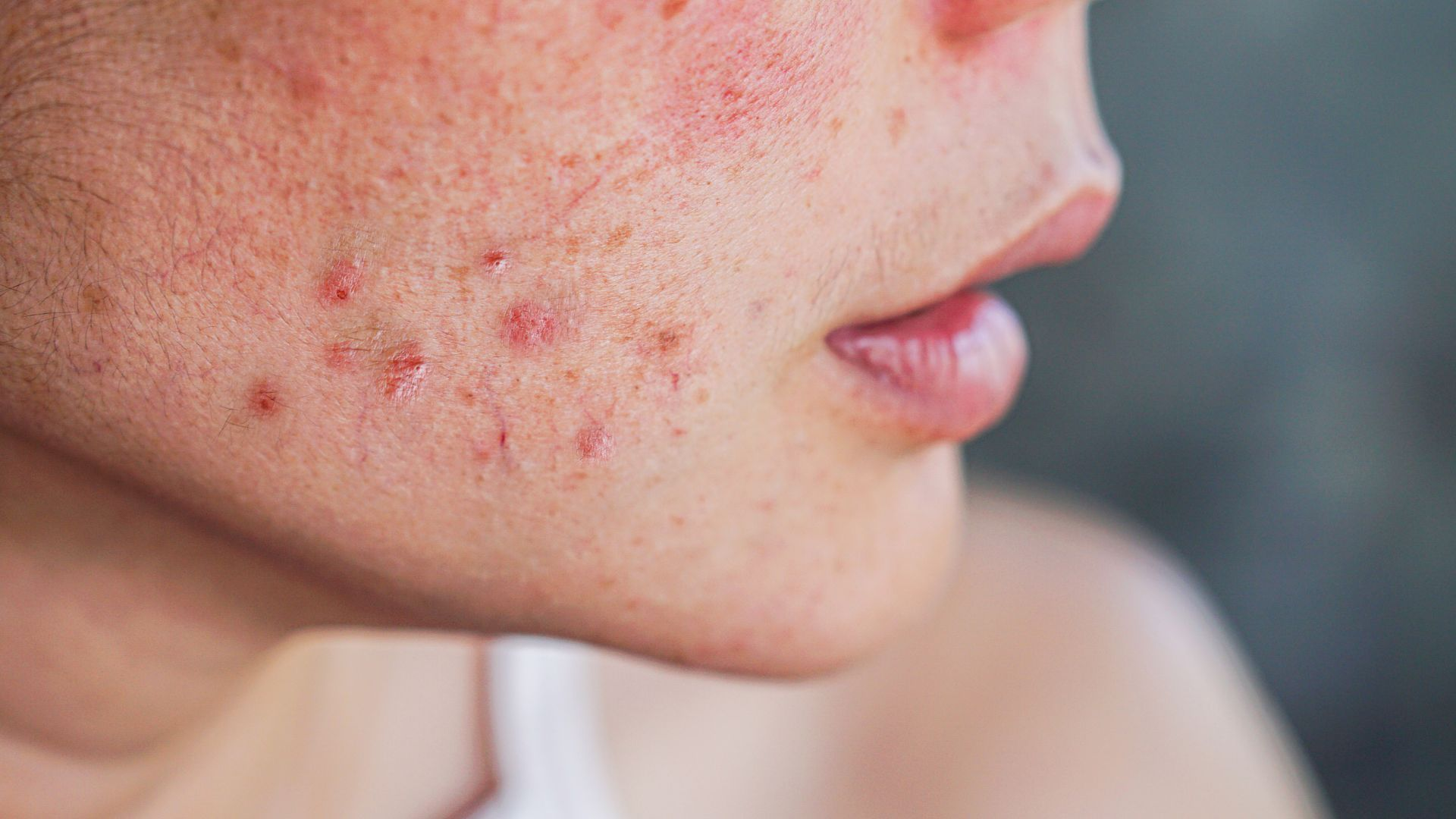
Understanding the specific type of acne is crucial in determining the appropriate treatment method to achieve the best outcomes.
Treatment Management Options for Acne
Acne can be treated in numerous ways. The kind, severity, and age of your acne all influence the kind of treatment that works best for you. A medical dermatologist may advise you to treat your skin using medicated therapies, topical drugs, or oral medications. Stopping the formation of new zits and healing existing skin lesions are the two main objectives of acne treatment.
1. Topical Treatments: To treat your skin, your doctor can advise applying a topical acne medicine. These drugs can be applied topically to your skin in the same manner as moisturizers or lotions. Products containing any of the following ingredients may be among them:
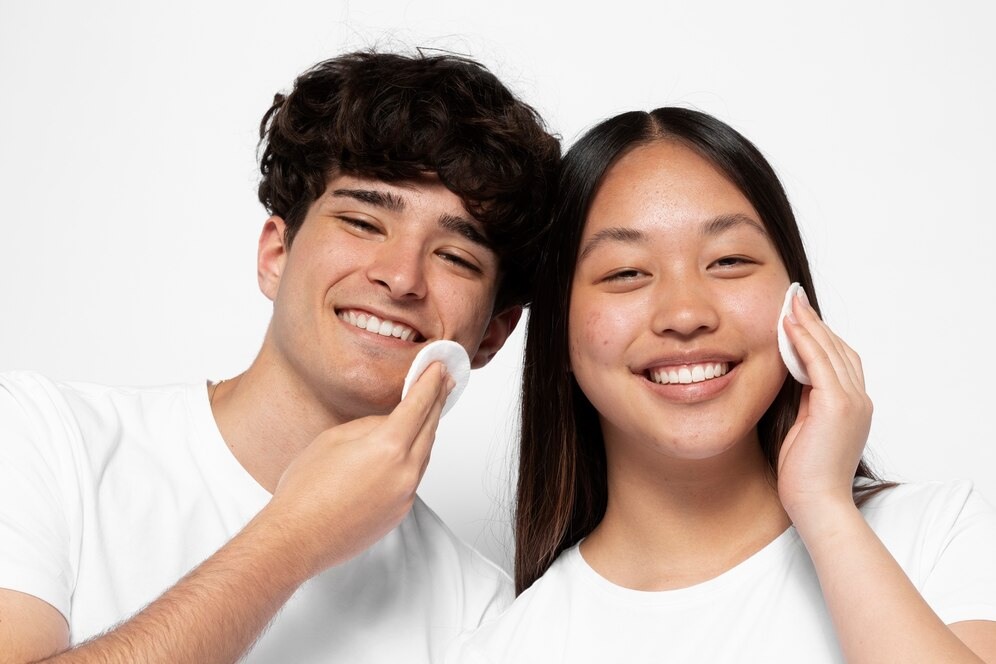
- Benzoyl peroxide: This can be purchased as an over-the-counter gel or wash under brands like PanOxyl®, Stridex®, and Clearasil®. It goes after surface bacteria, which frequently makes acne worse. Your skin will be less irritated by wash formulas and lower concentrations.
- Salicylic acid: This can be purchased over-the-counter as a lotion or cleanser for acne. It aids in removing the damaged skin’s outer layer. Salicylic acid unclogs your hair follicles by dissolving dead skin cells.
- Azelaic acid: A naturally occurring acid present in a variety of cereals, including barley, wheat, and rye. It lowers edema and eliminates bacteria on the skin.
- Retinoids (vitamin A derivatives): Retinol, which is available over-the-counter and includes Retin-A®, Tazorac®, and Differin®, breaks up blackheads and whiteheads and helps prevent clogged pores, which are the initial signs of acne.
- Antibiotics: Topical antibiotics, such as erythromycin and clindamycin, control surface bacteria that aggravate and cause acne; benzoyl peroxide improves the effectiveness of antibiotics.
- Dapsone: Dapsone (Aczone®) is a topical gel that contains antibacterial properties and is used to treat inflammation.
2. Oral Medications: Taking pills orally to treat acne is known as oral acne medicine. Among the varieties of oral acne treatments are:
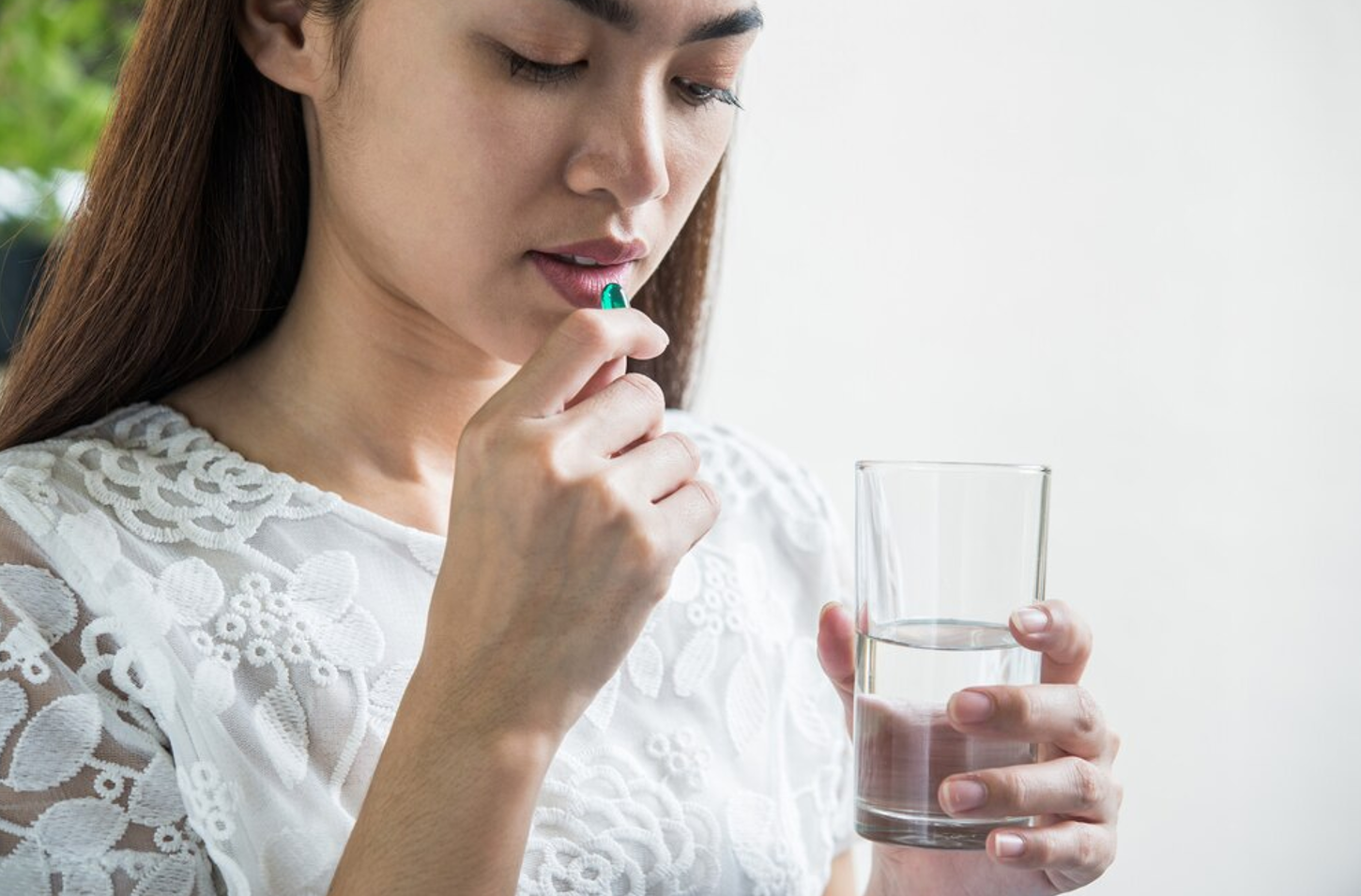
- Antibiotics: Antibiotics address bacterial acne. Tetracycline, minocycline, and doxycycline are common antibiotics for acne. For mild to severe acne, these work well.
- Isotretinoin: It is an oral retinoid available under the brand names Amnesteem®, Claravis®, and Sotret®. Isotretinoin causes oil glands to shrink, which exacerbates acne.
- Hormone therapy: If you have irregular periods or acne flare-ups during your menstrual cycle that are brought on by an excess of the hormone androgen, hormone therapy may be beneficial for you. Low-dose estrogen and progesterone birth control pills or spironolactone medicine, which inhibits the action of specific hormones at the level of your hair follicles and oil glands, are two forms of hormone therapy.
3. Procedural Interventions: In order to target acne lesions, reduce inflammation, and promote skin healing, dermatological techniques such as chemical peels, microdermabrasion, laser therapy, and photodynamic therapy can be used in conjunction with topical and oral treatments.
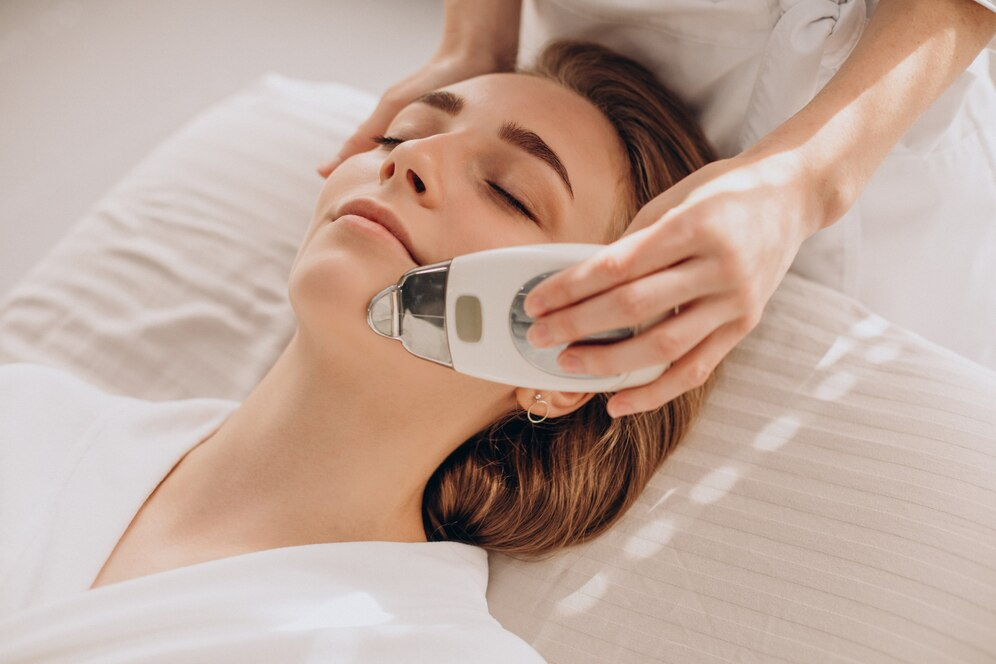
4. Lifestyle Modifications: Changing certain aspects of one’s lifestyle might also help treat acne. These include developing a skincare regimen designed especially for people with acne, keeping up with sanitation, eating a balanced diet low in dairy and refined sugars, controlling stress, and staying away from comedogenic items. These changes can enhance general skin health and help avoid acne flare-ups.
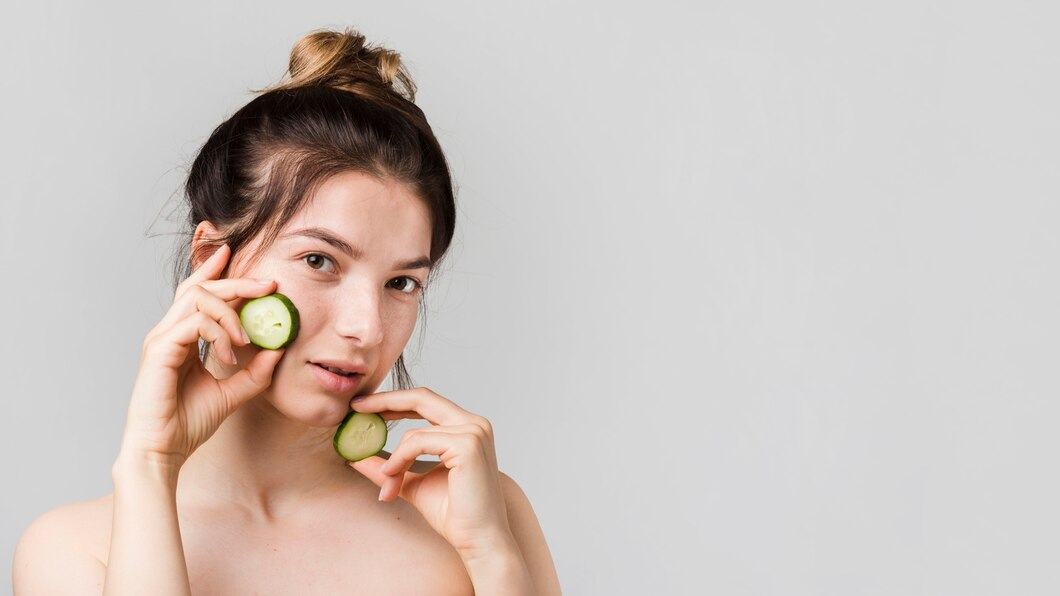
Benefits of Seeing a Dermatologist for Acne Treatment
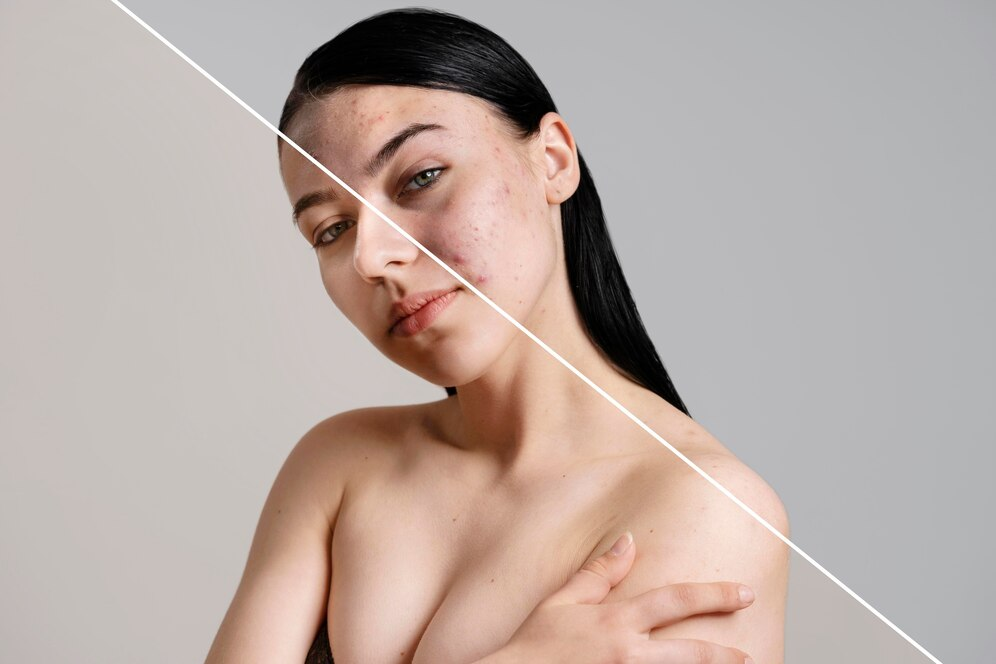
Postponing therapy may leave acne scars that require cosmetic procedures to erase.
Fortunately, scarring from severe acne can be avoided with prompt and effective treatment of the breakout location. You can reduce the likelihood of these recurring reminders of your acne battle by working with a dermatologist who has experience in stopping breakouts as soon as feasible. Consulting a dermatologist for the treatment of your acne can be beneficial in many ways. These professionals are skilled at diagnosing and managing a broad range of skin issues. Dermatologists have seen it all, so chances are good that your dermatologist has dealt with acne similar to yours in the past. They are therefore aware of the most effective, rapid, and simple methods for managing and controlling it. Many skin conditions present as forms resembling severe acne. If you happen to have one of these disorders, your dermatologist will be able to identify it and put you on a customized healing plan.
Many people struggle for years to control their acne on their own, frequently with little success. A dermatologist can provide a personalized treatment strategy for resistant acne. Theme Dermatology Clinic’s board-certified dermatologists can help you see clear skin at last and stop feeling self-conscious about your breakouts. By successfully controlling and treating your acne, our dermatologists can help you feel better about yourself and your appearance while teaching you how to properly take care of your skin.
Put info about going to Theme Dermatology and why you should choose the clinic.
Aftercare for Acne Treatment
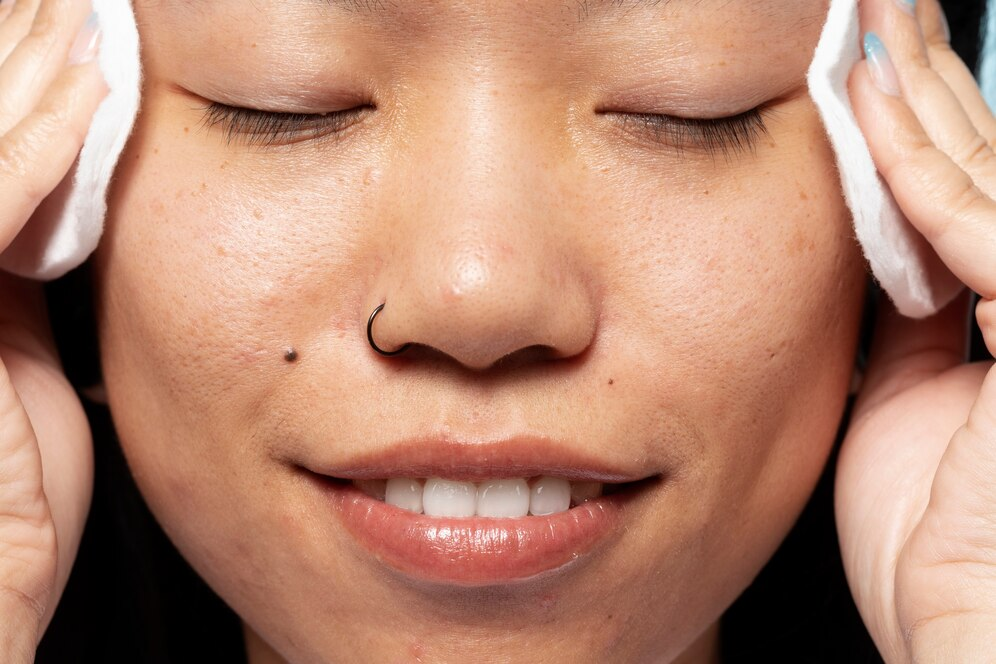
Getting the most out of your acne scar treatment depends in large part on proper aftercare. Your dermatologist will thus provide you with specific aftercare advice. Here is an overview of what aftercare usually entails so that you are prepared.
- Observe the aftercare recommendations provided by your dermatologist. These may involve a skin care regimen that calls for the use of certain skin care products. Use the skin care items your dermatologist prescribed. Following treatment, your skin may become sensitive; these items might assist.
- Use sunscreen. After treatment, the sun can darken the skin, therefore use sunscreen to the affected area every day. Using sunscreen helps shield against this. Applying sunscreen 15 minutes before going outside is crucial, even if you’ll only be outside for a short while, like heading to your car.
- Stay out of the sun and avoid tanning. Your skin requires time to heal after treatment. For six to eight weeks, you should generally refrain from spending excessive amounts of time outside during the day, even on gloomy or chilly days.
- Proper wash. As advised by your dermatologist, wash the treated area of skin. Maintaining clean skin lowers the chance of infection.
- Set reasonable goals for yourself. While scars can be less noticeable with treatment, benefits may not be seen right away. Numerous therapies for depression-like (sunken-in) scars encourage the skin to produce more elastin and collagen, which lessens the appearance of sunkenness. Your body produces collagen and elastin gradually.
Why Choose Gangnam Theme Dermatology
It’s time to take action and get the clear, glowing skin you deserve now that you are well-informed on acne kinds, causes, and accessible treatments. Now, let’s use those information to open the door to the radiant skin of your dreams. However, where do you even start?
The good news is that you don’t need to handle things by yourself. Theme Dermatology Clinic can be your partner in this journey. Our skilled team of medical professionals at Theme Dermatology Clinic has years of experience treating acne, and they are eager to assist you in getting the skin you’ve always desired. With three board-certified dermatologists with extensive expertise, Gangnam Theme Dermatology is one of the oldest dermatology practices in Gangnam, Seoul, South Korea. It can be found right between Sinnonhyeon and Gangnam Stations, in the center of the famous Gangnam neighborhood. With an extensive experience of over 20 years in dermatology, our team of specialists is highly regarded for their expertise and unwavering commitment to excellence. Over more than 20 years, the clinic cared for patients with various skin issues and types. They can assist you with acne, pigmentation, anti-aging (lifting), scars, and other skin issues. Also, among Korean clients, they are one of the most well-known skin clinics. The variety of services they offer and their knowledge of skin issues will satisfy you.
Gangnam Theme Dermatology Booking Information
The clinic can be found at 423 Gangnam-daero, Seocho-gu, Hanseung Building, 7th Floor, Seoul, South Korea. To reach out directly, dial +821094839974 on WhatsApp and Kakao. Sending a message to Gangnam Theme Dermatology will allow you to talk about your concerns, make an appointment, or receive an online consultation. Send an email to [email protected]. You can also look through everything and ask questions on the Gangnam Theme Dermatology website by clicking this link: About Us
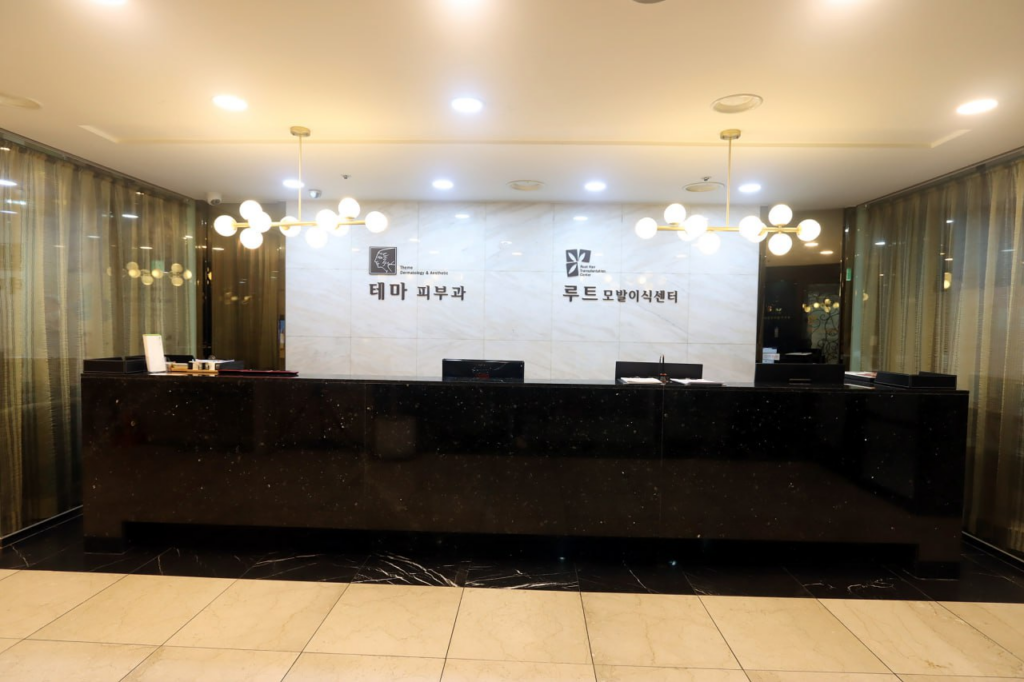

FAQs
Although some people will continue to have acne throughout maturity, acne typically disappears in the early years of adulthood. You can manage this problem with the assistance of a board-certified dermatologist or your healthcare practitioner. A variety of drugs and therapies work well as treatments. Before you and your healthcare professional determine which treatment is best for your skin, it may take a few tries. Products for skin care that you find effective may not be effective for someone else with the same symptoms.
There are several ways that acne can show up: inflammatory acne (papules, pustules, nodules), cystic acne (deep, painful cysts), and comedonal acne (whiteheads and blackheads). A dermatologist can examine your skin and determine the precise type of acne that is present, considering its severity and characteristics.
Certain lifestyle modifications might indeed improve acne. Clearer skin and fewer breakouts of acne can be attained by following a well-balanced diet low in dairy and refined sugars, avoiding harsh or comedogenic products, maintaining good hygiene, managing stress, and practicing consistent skincare.
Conclusion
So, there you have it. Acne is a complex skin issue that can be affected by a range of facttos genetics, hormones, and lifestyle choices. It is important to understand first the root causes of acne up to exploring how to treat it to effectively manage this condition and enhance skin health. Remember, you are not alone having this. By implementing a holistic approach that you have learned, you can restore your confidence and achieve clearer, healthier skin. Seeking advice from a dermatologist is advisable for a personalized evaluation and treatment plan for specific skin issues. With the right knowledge and proactive skincare routines, conquering acne is achievable, enabling everyone to embrace the skin with confidence and self-assurance.

